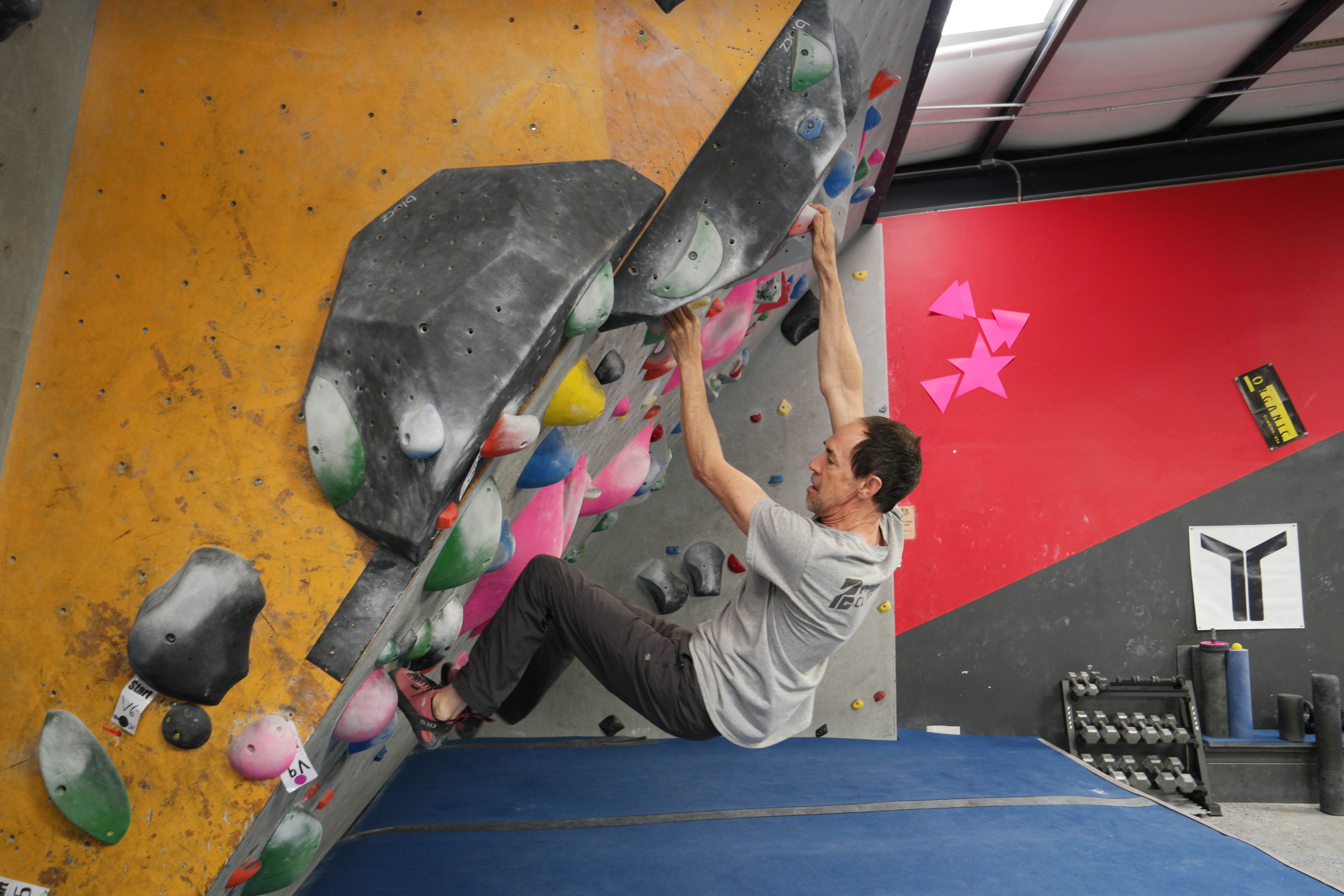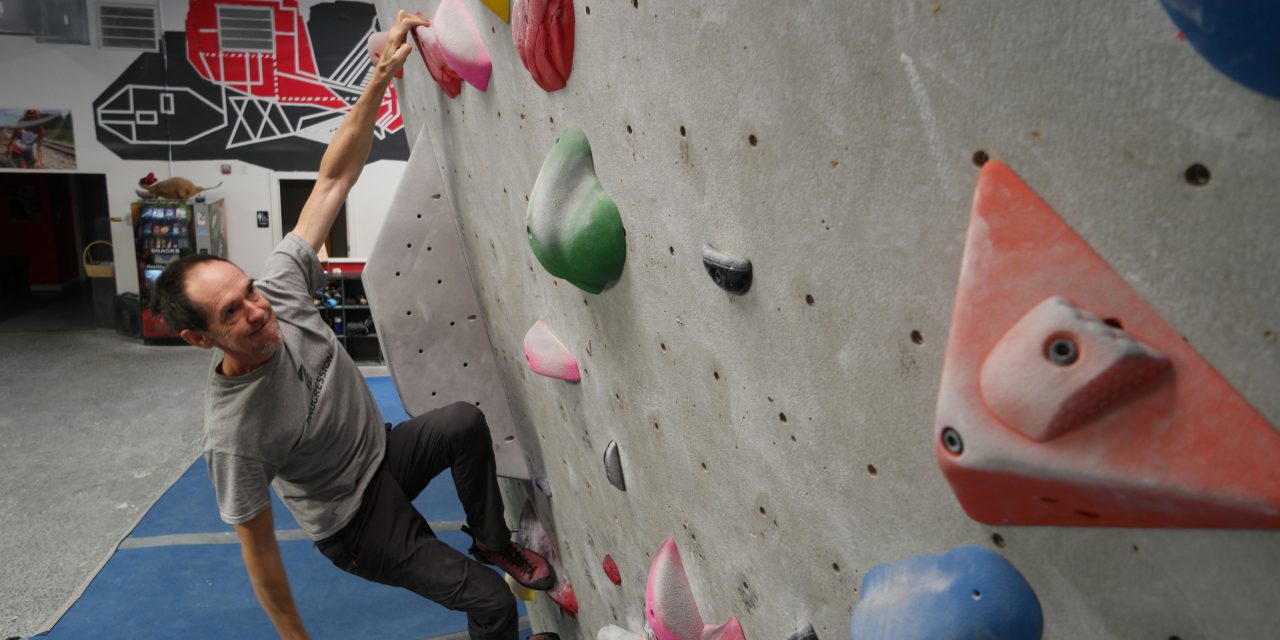If you’re afraid of heights, intimidated by ropes and couldn’t guess the meaning of the word “belay” — but would still like to give rock climbing a try — then bouldering might be just right for you.
Progression Climbing, a bouldering gym located on Legion Rd, allows people to experience “an aspect of rock climbing where you don’t use ropes or harnesses,” according to Don Raleigh, a manager of the climbing facility.

If you’ve driven past Progression and wondered what exactly it looks like inside, you might be surprised the first time you visit the gym – and it is a gym. This climbing area is about the size of a high school gymnasium, and a wall perpendicular to the floor gives beginners a place to practice while a steeper angle and overhang provide a challenge to more skilled climbers.
Extra-springy crash pads break the falls of climbers of every skill level, and even the toughest routes allow for free maneuvering on top of each 14’-16’ wall without even the slightest fear of injury. Granted, that probably still sounds high to someone with acrophobia, but with all the protection provided by Progression there’s nothing to be worried about.
Bouldering routes in a wide range of difficulties are assigned numbers reflecting their challenge level, and the handholds are bolted to the walls to create “problems” for climbers that are meant to be solved by climbing. The easiest route is V0, where the “V” stands for “Verm” or “Vermin” – a nickname for John Sherman, who invented the grading system.
One of the great things about Progression Climbing is the atmosphere. Climbers share the routes and are generally supportive of each other. In fact, it’s not uncommon to hear a climber on the ground pointing out potential handholds to those on a wall.
Progression offers a good deal more than bouldering, as well. Youth Programs, training, special events and yoga are all part of what’s available at the facility. Adult and youth climbers alike have the opportunity to train and improve their skills all the way to competition level. In most cases, becoming a member of the center assures a reduced rate for everything from expert sessions to yoga classes.
 “Yoga seems to really help a climber’s movement,” said Raleigh. “It’s body movement and body awareness through and through to make these maneuvers. And I’ve heard many times from climbers who take yoga classes here that they’ve made great advances in their climbing.”
“Yoga seems to really help a climber’s movement,” said Raleigh. “It’s body movement and body awareness through and through to make these maneuvers. And I’ve heard many times from climbers who take yoga classes here that they’ve made great advances in their climbing.”
There’s no doubt that climbing requires a high level of physical fitness and can take a good deal of strength, especially in the forearms. But you shouldn’t let your current fitness level discourage you from giving it a try, even if you’re afraid of heights!
Training at Progression can be valuable preparation to get outside and climb boulders all over North Carolina – and the world. Pilot Mountain and Moore’s Wall are two specific spots to get practical climbing experience, and part of the appeal of bouldering according to Raleigh is that “you can just take a mat, a lunch, and go clambering around on the rocks without fear of falling very far.”


